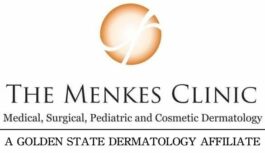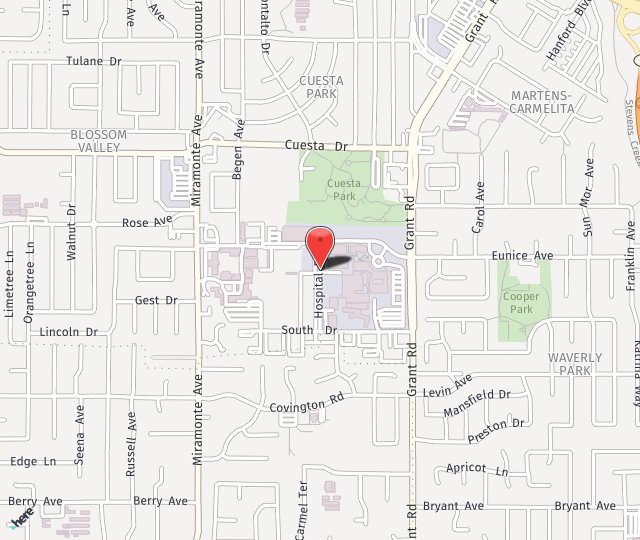While “the itch that rashes” is often thought of as a childhood condition, about three percent of the adult population also suffers with eczema. The dermatologists at The Menkes Clinic & Surgery Center share this helpful information on causes of eczema and treatment options for adults in the Mountain View area.
Understanding eczema
Eczema is a general term for a cluster of conditions with the same basic symptoms – itchy, red patches of skin. This grouping includes:
- Atopic dermatitis
- Contact dermatitis
- Seborrheic dermatitis
- Stasis dermatitis
- Dyshidrotic eczema
- Nummular eczema
Again, “eczema” is the overarching name for this disorder. “Atopic dermatitis” describes the severe and chronic (long-lasting) form of eczema.
While eczema can present anywhere on the body, in adults it is common on the backs of the knees or on hands, feet, or wrists. Without proper treatment, mild swelling and dry, sensitive skin become inflamed. Itching gets intense. Scratching leads to oozing and crusting and may introduce secondary infection. Eventually, skin becomes discolored and leathery or rough.
While babies usually outgrow eczema, adults can develop it even if they never had eczema during childhood.
What causes eczema?
Eczema is not airborne contagious or spread by physical contact, but the appearance can be embarrassing, and symptoms are uncomfortable. While there is still much to be learned about the causes of this prevalent skin condition, the medical community recognizes that:
- It is not a true allergic reaction. However, many people who have eczema also have common food sensitivities (dairy, nuts, eggs, etc.), and these foods, even in small quantities, may cause flare ups in adulthood.
- Eczema appears to be an abnormality of the immune system; an overreaction to something that is not truly a threat to the body.
- Skin is a barrier that protects internal organs from environmental elements and disease. Eczema creates a deficiency in this barrier, also impacting moisture retention.
- Genetics play a role. Eczema runs in families, and most people who develop it have relatives with the same condition, seasonal allergies, or asthma.
- Environment is a factor. Adults who live in urban pollution or colder temperatures are more likely to have eczema.
Eczema treatment for adults in Mountain View
The most important step in effectively treating eczema is to team up with a qualified dermatologist who can help you identify your personal triggers, since causes of flare-ups vary greatly from one person to the next.
A trigger is anything that causes an outbreak of eczema or makes the condition worse. Substances that come in contact with skin, such as wool or acrylic fibers, may cause irritation. Soap, makeup, perfume, household cleansers, chlorine, solvents, dust or sand, and cigarette smoke are also frequent culprits. A flare up may be triggered by something that burdens the immune system – an illness, bacterial infection, allergic reaction, or even emotional stress.
You may find yourself scratching at eczema after swimming in cold water or soaking in a hot bath, becoming very warm or cold, or profuse sweating followed by a chill. A dry climate or low indoor humidity during the winter heating season can also trigger symptoms.
Once you have identified what makes you break out, the doctor can guide you toward simple lifestyle changes to reduce problems with eczema. You might need to take shorter, cooler showers and pat dry (no rubbing) followed by a high-quality moisturizing lotion. Fragrance-free cosmetics with natural ingredients may help. The doctor will provide a list of chemicals to watch out for when purchasing these items. Sometimes, switching to a laundry detergent for sensitive skin and avoiding fabric softener dryer sheets helps dramatically.

Home care is all about minimizing outbreaks. Dermatological treatment focuses on finding relief and clearing symptoms. This may be accomplished with:
- Medical grade, hypoallergenic skin care products.
- Prescription strength topical hydrocortisone cream or ointment.
- Oral antihistamines.
- Corticosteroids taken by mouth.
- Ultraviolet light therapy for severe cases.
If you think you may have eczema, it is time to stop scratching and start enjoying your skin again with effective eczema treatment for adults. Call The Menkes Clinic & Surgery Center for an appointment with Dr. Menkes, Dr. Wang, or Dr. Soohoo. The number in Mountain View, CA is (650) 962-4600.

